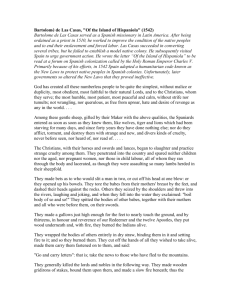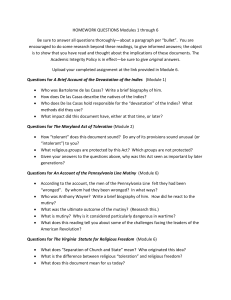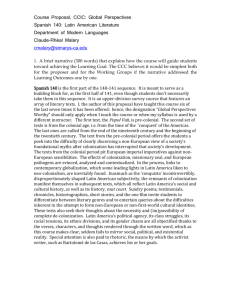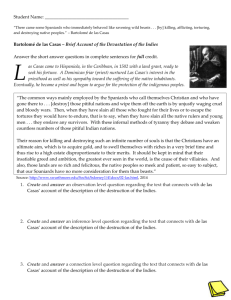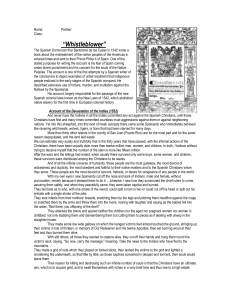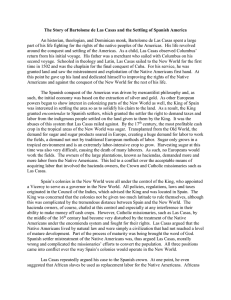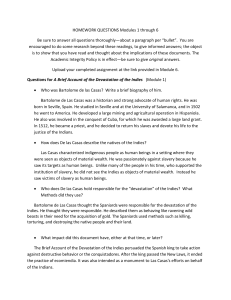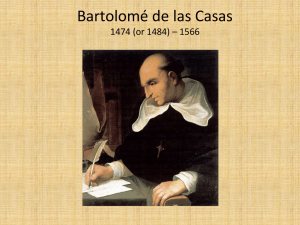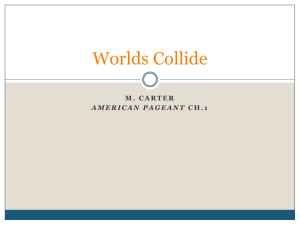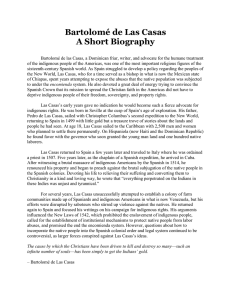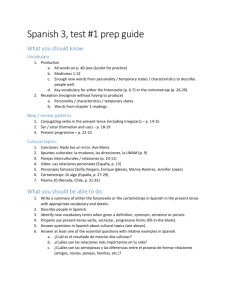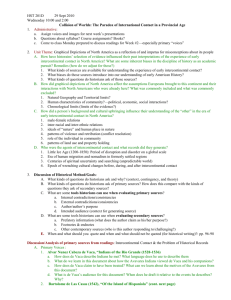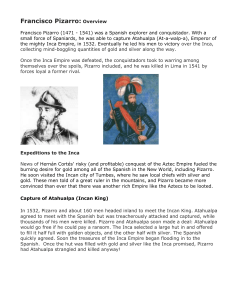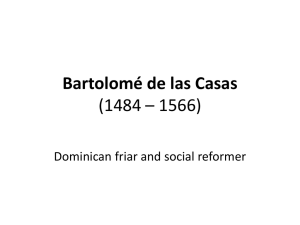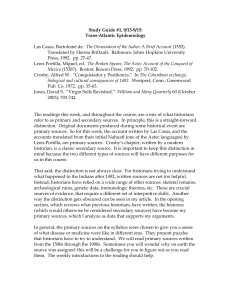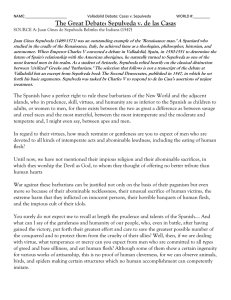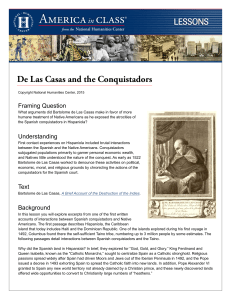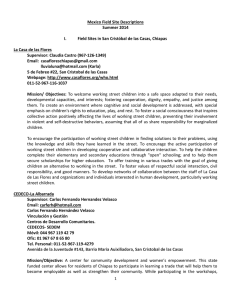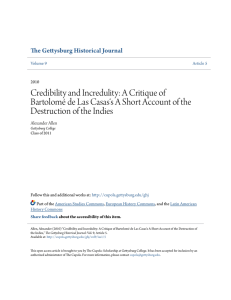Document Based Essay
advertisement
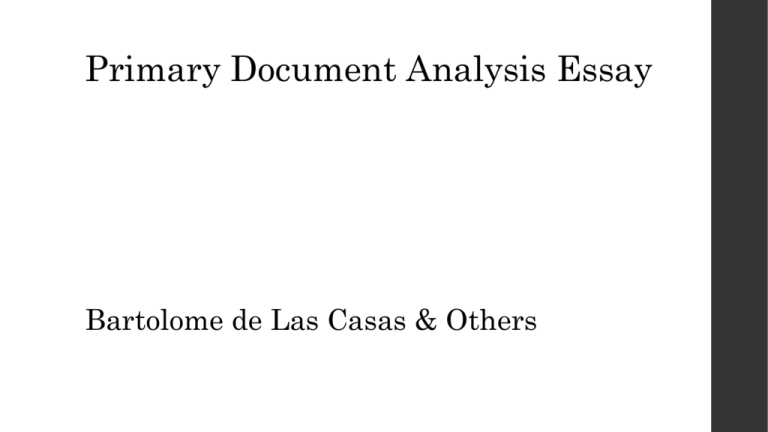
Primary Document Analysis Essay Bartolome de Las Casas & Others Primary Source Document: Bartolome de Las Casas’s narrative: “A Brief Account of the Destruction of the Indies”. Seville, Spain, 1552 These People were found by them to be Wise, Grave, and well dispos’d, though their usual Butcheries and Cruelties in opressing them like Brutes, with heavy Burthens, did rack their minds with great Terror and Anguish. At their Entry into a certain Village, they were welcomed with great Joy and Exultation, replenished them with Victuals, till they were all satisfied, yielding up to them above Six Hundred Men to carry their Bag and Baggage, and like Grooms to look after their Horses: The Spaniards departing thence, a Captain related to the Superiour Tyrant returned thither to rob this (no ways diffident or mistrustful) People, and pierced their King through with a Lance, of which Wound he dyed upon the Spot, and committed several other Cruelties into the bargain. In another Neighboring Town, whose Inhabitants they thought, were more vigilant and watchful, having had the News of their horrid Acts and Deeds, they barbarously murdered them all with their Lances and Swords, destroying all, Young and Old, Great and Small, Lords and Subject without exception. Part #1 According to sixteenth-century historian Bartolome de Las Casas, how did the Spanish treat the indigenous people they encountered in the New World? How does the drawing in the Las Casas book display the Spanish? How does it display the indigenous people? 1700 The Coureur de Bois by Alexander Ross (1789-1856) One day while in a jocular mood the old man began to talk over his past life. It was full of adventure, and may appear amusing to others as it did to us. I shall give it as nearly as I can in his own words. "I have now," said he, "been forty-two years in this country. For twenty-four I was a light canoeman. I required but little sleep, but sometimes got less than I required. No portage was too long for me; all portages were alike. My end of the canoe never touched the ground till I saw the end of it. Fifty songs a day were nothing to me. I could carry, paddle, walk and sing with any man I ever saw. During that period I saved the lives of ten bourgeois, and was always the favourite because when others stopped to carry at a bad step and lost time, I pushed on - over rapids, over cascades, over chutes; all were the same to me. No water, no weather ever stopped the paddle or the song. I have had twenty wives in the country; and was once possessed of fifty horses and six running dogs trimmed in the first style. I was then like a bourgeois, rich and happy. No bourgeois had better-dressed wives than I; no Indian chief finer horses; no white man better harnessed or swifter dogs. I beat all the Indians at the race, and no white man ever passed me in the chase. I wanted for nothing; and I spent all my earnings in the enjoyment of pleasure. Five hundred pounds twice told have passed through my hands, although now I have not a spare shirt to my back nor a penny to buy one. Yet, were I young I should glory in commencing the same career. I would spend another half-century in the same fields of enjoyment. There is no life so happy as a voyageur's life; none so independent; no place where a man enjoys so much variety and freedom as in the Indian country. Huzza, huzza pour le pays sauvage!" After this cri de joie he sat down in the boat and we could not help admiring the wild enthusiasm of the old Frenchman. He had boasted and excited himself till he was out of breath and then sighed with regret that he could no longer enjoy the scenes of his past life. *** Source: Alexander Ross, The Fur Hunters of the Far West (1855) Part #2 How is the level and character of interaction with Native Americans different or the same between Spanish conquistadors and French Coureur de Bois? How are Native Americans portrayed differently? Part #3 Find a primary source from English or Dutch colonists and compare or contrast their interaction with and portrayal of the Native Americans with the Spanish and French examples. 8/12/1
